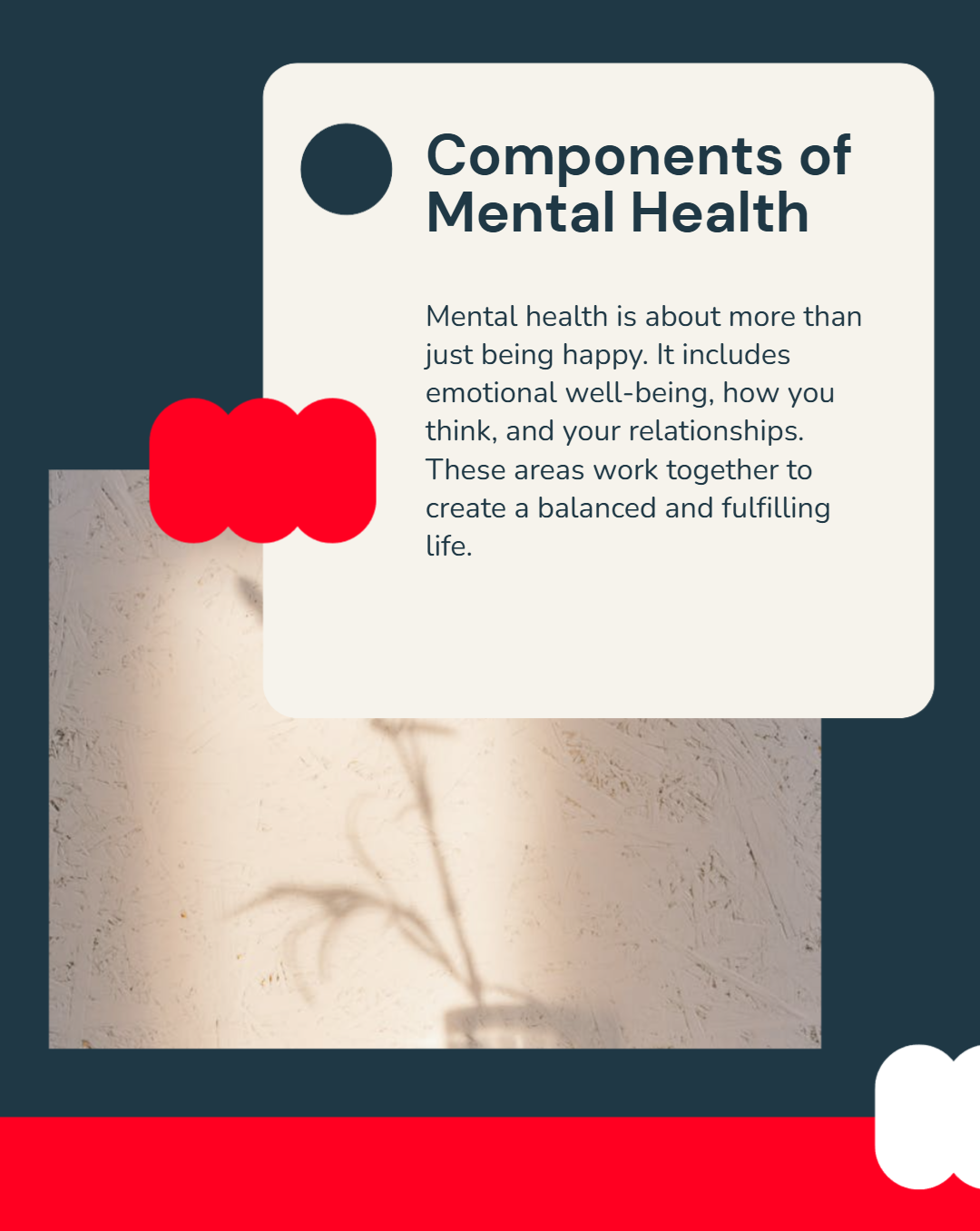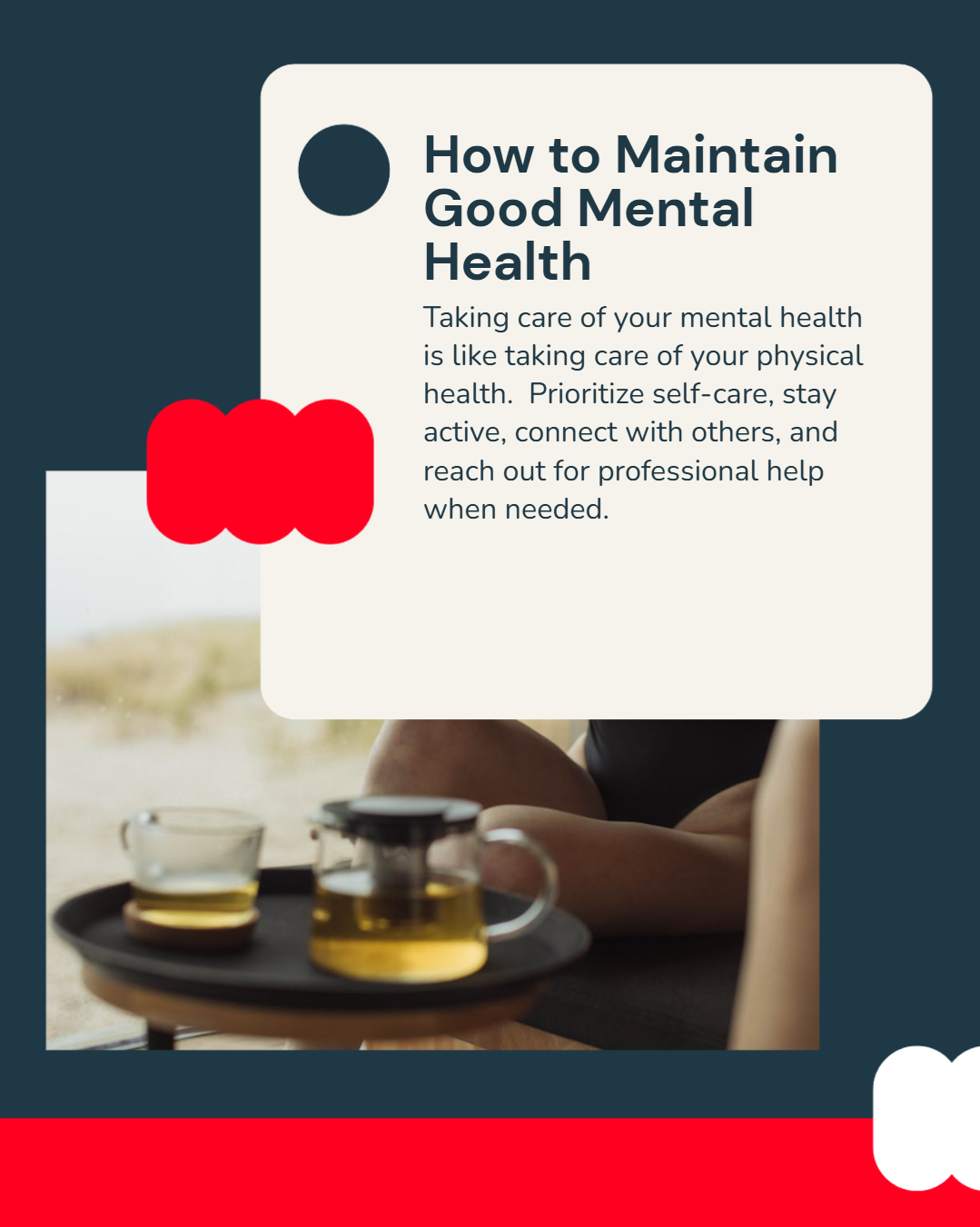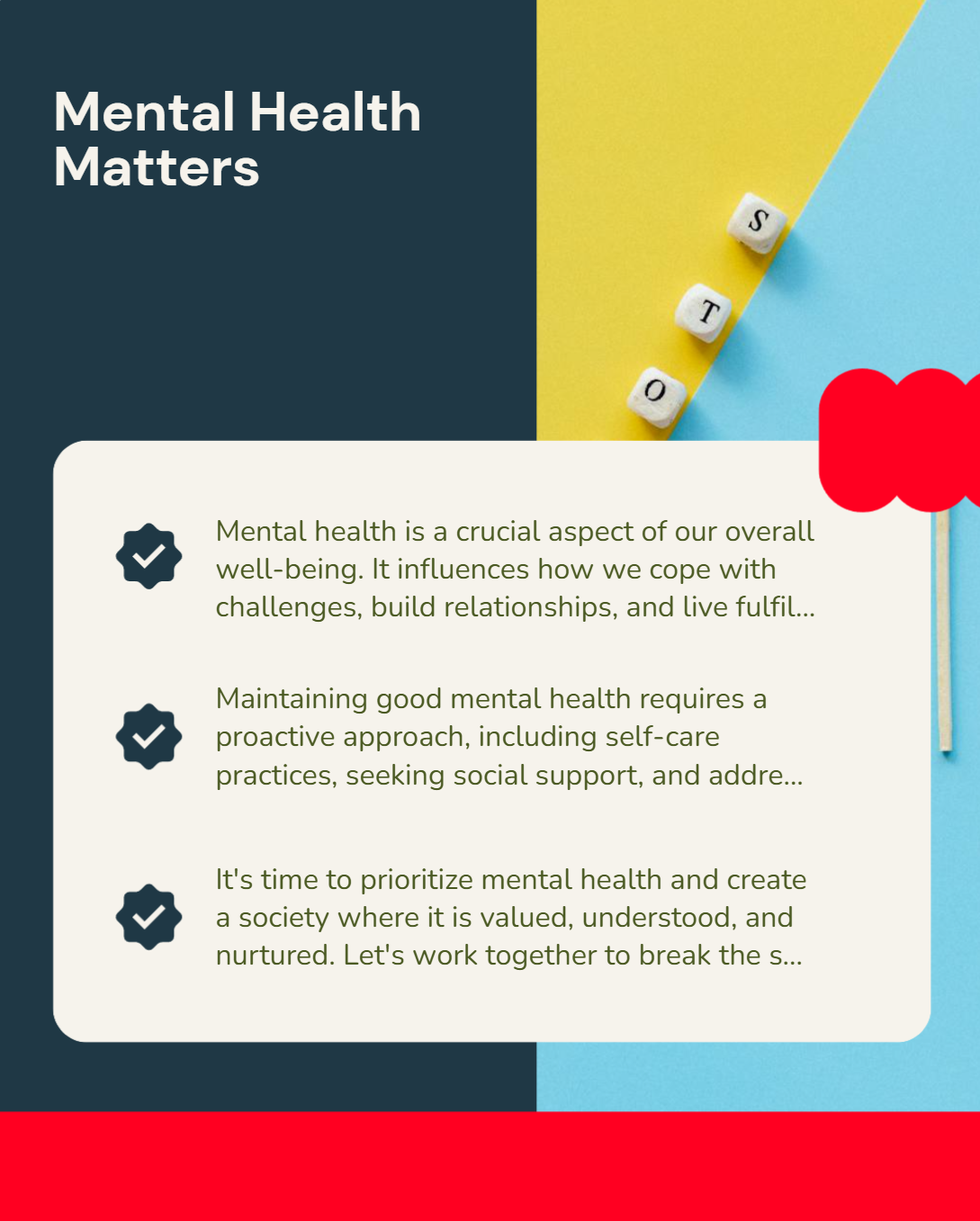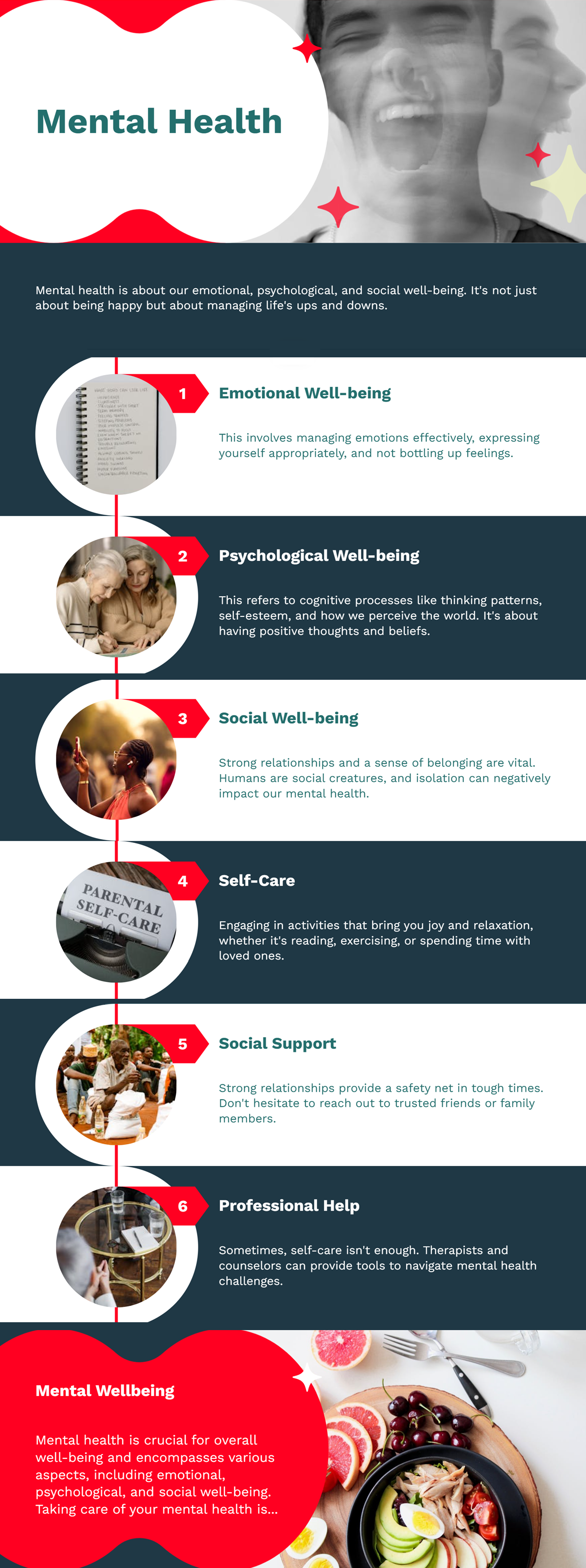LET`S BREAK IT DOWN
Mental health is a buzzword we hear all the time. But what does it actually mean? It’s more than just being happy or free of a mental illness. Mental health encompasses your emotional, psychological, and social well-being. In this article, we’ll explore what mental health truly entails, why it’s crucial, and how we can maintain it.
Mental health is an umbrella term that refers to the state of our emotional, psychological, and social well-being. It influences how we think, feel, and behave in daily life. Good mental health doesn’t mean you’re always happy or never have bad days; it’s about being able to manage life’s highs and lows effectively.

Mental health affects every aspect of your life. Whether it’s work, relationships, or daily decisions, having good mental health allows you to cope with stress, communicate effectively, and make sound decisions. Without it, even the simplest tasks can feel overwhelming.
Your mental health directly impacts your physical health. Chronic stress, for instance, can lead to physical ailments such as heart disease, weakened immune systems, and digestive problems.
Struggling with mental health can affect your ability to maintain relationships. It might lead to isolation or difficulty connecting with others, creating a cycle that’s hard to break.

Mental health is more than just avoiding mental illness. It includes a range of factors, such as:
This involves managing emotions like anger, sadness, or joy effectively. It’s about expressing yourself appropriately and not bottling up feelings.
This refers to cognitive processes such as thinking patterns, self-esteem, and how we perceive the world. Positive psychological well-being can lead to better decision-making and problem-solving skills.
Strong relationships and a sense of belonging are vital. Humans are social creatures, and isolation can negatively impact our mental health.
There are several misconceptions about mental health that need debunking. Let’s address some of the most prevalent ones:
Fact: Mental health challenges are incredibly common. According to the World Health Organization, 1 in 4 people will experience a mental health issue at some point in their lives.
Fact: Mental health is a broader term that encompasses emotional and social well-being, not just the presence or absence of a mental illness.
Fact: Mental health challenges can affect anyone, regardless of their strength, background, or circumstances.
Recognizing the early signs of mental health struggles is key to addressing them effectively. Here are a few red flags:

Maintaining mental health requires proactive effort. Here are some strategies:
Engage in activities that bring you joy and relaxation, whether it’s reading, exercising, or spending time with loved ones.
Physical activity is a proven mood booster. It releases endorphins that can alleviate stress and anxiety.
Strong relationships provide a safety net in tough times. Don’t hesitate to reach out to trusted friends or family members.
Sometimes, self-care isn’t enough. Therapists and counselors can provide tools to navigate mental health challenges.
Mental health is not just an individual responsibility; society plays a crucial role. Here’s how:
Open conversations about mental health reduce stigma and make it easier for people to seek help.
Governments and organizations can make mental health services affordable and accessible to all.
Awareness campaigns and school programs can teach people about the importance of mental health from an early age.
Mental health is a broader term referring to emotional, psychological, and social well-being. Mental illness refers to specific conditions, such as anxiety or depression, that affect mental health.
Yes, exercise is a powerful tool for improving mental health. It releases endorphins that reduce stress and improve mood.
Listen without judgment, encourage them to seek professional help, and be patient as they navigate their journey.
While genetics can play a role, environmental factors and life experiences also significantly impact mental health.
If symptoms persist for more than two weeks or interfere with daily life, it’s time to consult a professional.

Mental health is an integral part of our overall well-being. It’s about more than avoiding mental illness—it’s about thriving emotionally, psychologically, and socially. By taking steps to care for ourselves and supporting others, we can create a world where mental health is prioritized, understood, and nurtured.
 13.12.2024
13.12.2024